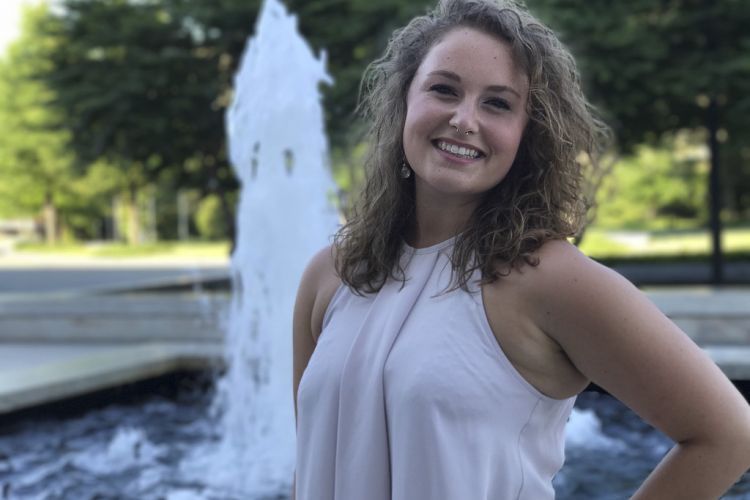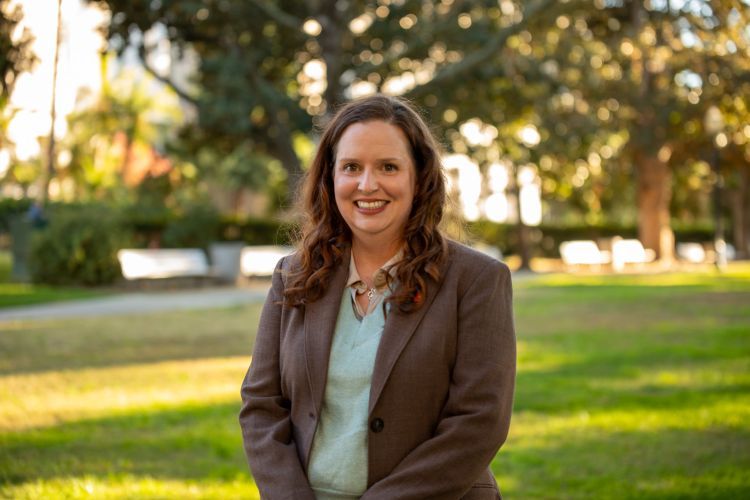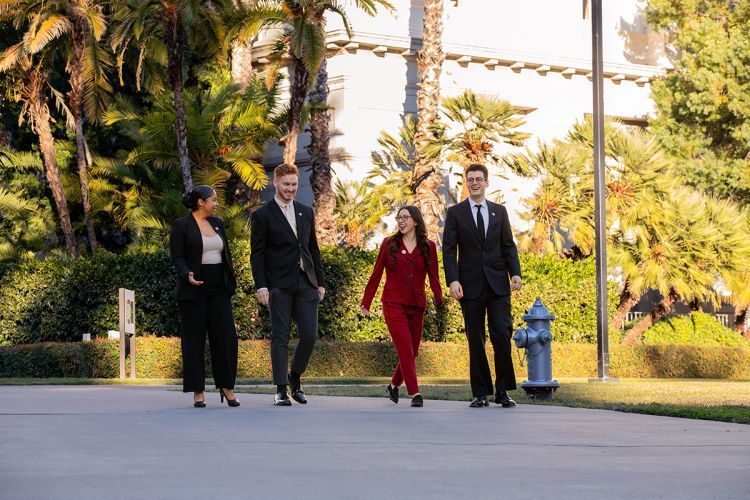Breadcrumb
McGeorge unites with dozens of law schools in ABA consortium addressing legal issues in policing

Third-year law student Annie Thomas is working on a research project as part of the McGeorge School of Law’s involvement with the American Bar Association’s Legal Education Police Practices Consortium.
Third-year law student Annie Thomas is working on a research project to identify and catalog local laws related to policing as part of the University of the Pacific McGeorge School of Law’s involvement with the American Bar Association’s (ABA) Legal Education Police Practices Consortium.
Fifty-five law schools across the country are participating in the Consortium’s five-year initiative, which was created in October 2020. Each participating law school has developed meaningful opportunities for one its law students to engage in Consortium activities and contribute towards efforts to improve policing practices.
Thomas’ research currently is focusing on police policies relating to police use of force, budget cuts and other changes to police operations, and police hiring standards in California jurisdictions. If time allows, she will expand the project nationwide.
“I wanted first-hand experience contributing to the national effort to examine and address legal issues in policing and public safety,” Thomas said. “Students at McGeorge benefit from their law school participating in this Consortium because it provides an opportunity for students to contribute to a social justice movement during their law school experience.”
The Consortium aims to contribute to the national effort to examine and address legal issues in policing and public safety, including conduct, oversight, and the evolving nature of police work. The ABA and collaborating law schools are leveraging their combined expertise to develop and implement projects that will improve police practices throughout the U.S.
Dean Michael Hunter Schwartz served on the inaugural, 10-member Dean’s Advisory Board that works closely with the Consortium’s newly-hired director. Through this role, Schwartz supported the general direction of the Consortium and its projects.
“I was drawn to the Consortium’s approach because the goal is to work with police organizations and community organizations that are trying to come up with solutions that will reduce unnecessary police violence,” Schwartz said. “The Consortium’s aims are very consistent with McGeorge’s mission and my own passions.”
Schwartz said the Consortium aims to achieve the widespread adoption of model police practices; create curricula for law schools; develop legislative solutions to address policing challenges and racial inequity in the criminal justice system; and eliminate tactics that are racially motivated or have a disparate impact based on race.
“I know that our students are passionate about racial injustice in policing and other police reform issues,” Schwartz said. “This project is an effort to do something about these issues.”
Thomas, who is passionate about public policy and social change lawyering, is glad that McGeorge took a leadership role within the Consortium.
“McGeorge's participation symbolizes the school's dedication to social justice,” Thomas said. “By investing time and resources in this project, law schools like McGeorge provide a unique avenue for social change.”





